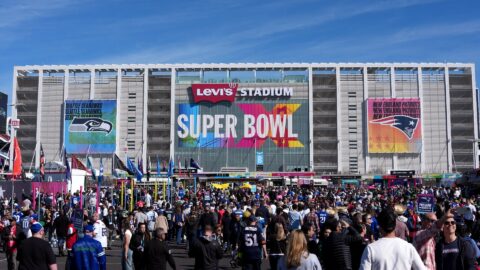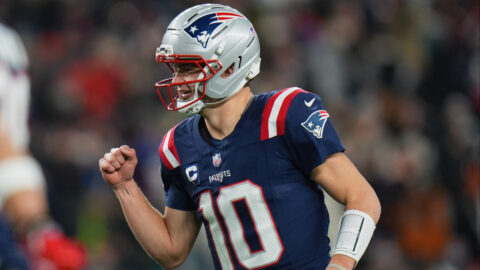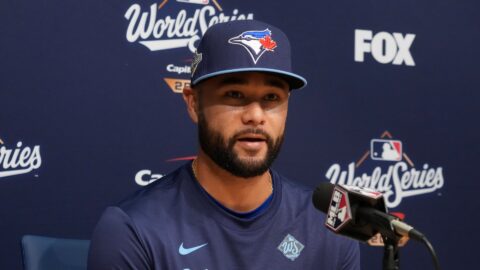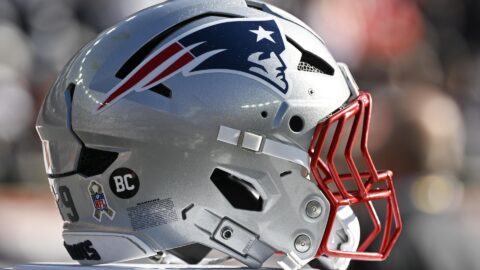Last week, we explored areas of weakness in each of the Celtics' starters — then tried to prescribe a fix. This week, we tackle the backups, who offer a bit more room for growth.
As a unit, the Celtics bench was highly inconsistent in 2010-11, especially during the postseason, alternating between pick-me-up performances by Delonte West and see-me-not outings from Glen Davis and Jeff Green.
If Boston wants to make another run in 2011-12 (if the season ever begins), something's gotta give. Here's what each of the reserves, assuming they remain with the organization, needs to work on during the lockout.
Glen Davis
His head. Big Baby has openly admitted that he struggled mentally this past postseason, and nothing could be more obvious. He went from a line of 7.3 points, five boards and 48 percent shooting in the 2010 playoffs to 5-4-39 in 2011. Even more bizarre? That was after mounting the best regular-season campaign of his career.
The 25-year-old also has to remember he's not Kevin Garnett. While we're all glad he's spent so much time developing it, a 20-foot jumpshot should not be Davis' go-to offensive play. Use that trademark girth to create some space in the paint, and use the outside range as a threat, instead of a promise.
If Davis, an unrestricted free agent this offseason, elects to sign with the Celtics, he needs to rediscover the bull-in-a-china shop attitude that made him a Sixth Man of the Year candidate.
Jeff Green
Confidence. After coming to Boston in February, this kid put together a solid regular season, averaging 15 points per 36 minutes of play with a 48.5 percent mark from the field.
But when the playoffs came, Green looked like a deer in headlights. His field-goal rate dropped to 43 percent, and he began turning the ball over on key possessions. The man who Danny Ainge thought would help lead Boston to banner No. 18 disappeared. He could've been any other reserve.
During this lockout, Green, who's a restricted free agent, needs to spend as much time as possible around his teammates. Get more comfortable around them. Be more vocal. The 24-year-old has far too much talent to waste on a lack of confidence.
Delonte West
Keep on keeping on. Minus spending too much time around the injury bug, West's return to the Celtics in 2010-11 was a triumphant one. Per 36 minutes, he averaged 10.7 points, 1.6 steals, five assists and three boards. He shot more efficiently than he has (46 percent) since 2005-06, notched his best mark ever from the charity stripe (87 percent) and got serious about defense, posting a career-best 101 defensive rating.
In the playoffs, he was even better. In fact, you could say he was the only Celtic to show up against Miami in the second round, shooting 53 percent from the field and a ridiculous 47 percent from beyond the arc.
If anything, the 28-year-old should get more aggressive on offense. West attempted just 9.5 shots per 36 minutes in 2010-11, well off his career average. If Ainge and the Celtics manage to convince him to return as the backup point guard (he might fetch more money in the open market), he could help solidify a one-two-three offensive punch of West-Davis-Green off the bench.
Avery Bradley
Jump shot. If West is re-signed, there's little chance second-year point guard will see significant action in 2011-12. He played just 162 minutes this past season, and the only obvious concern is his ability to score from the outside. The 20-year-old shot 34 percent from the field in 30 appearances, and missed the five 3-pointers he attempted.
If I were him, I'd be in the gym every day to rework my shot. The kid's form is eerily reminiscent of Rondo's, and that doesn't bode well.
Believe it or not, that's it for the backups. Bradley is the only reserve under contract; Nenad Krstic is on his way to Russia; Von Wafer’s Greece-bound; and we'll let rookies JaJuan Johnson and E'Twaun Moore see some NBA action before we pick them apart.
One thing's certain. With the Big Three’s ability to dominate games diminishing, Boston's bench needs to become more cohesive, consistent and productive.



